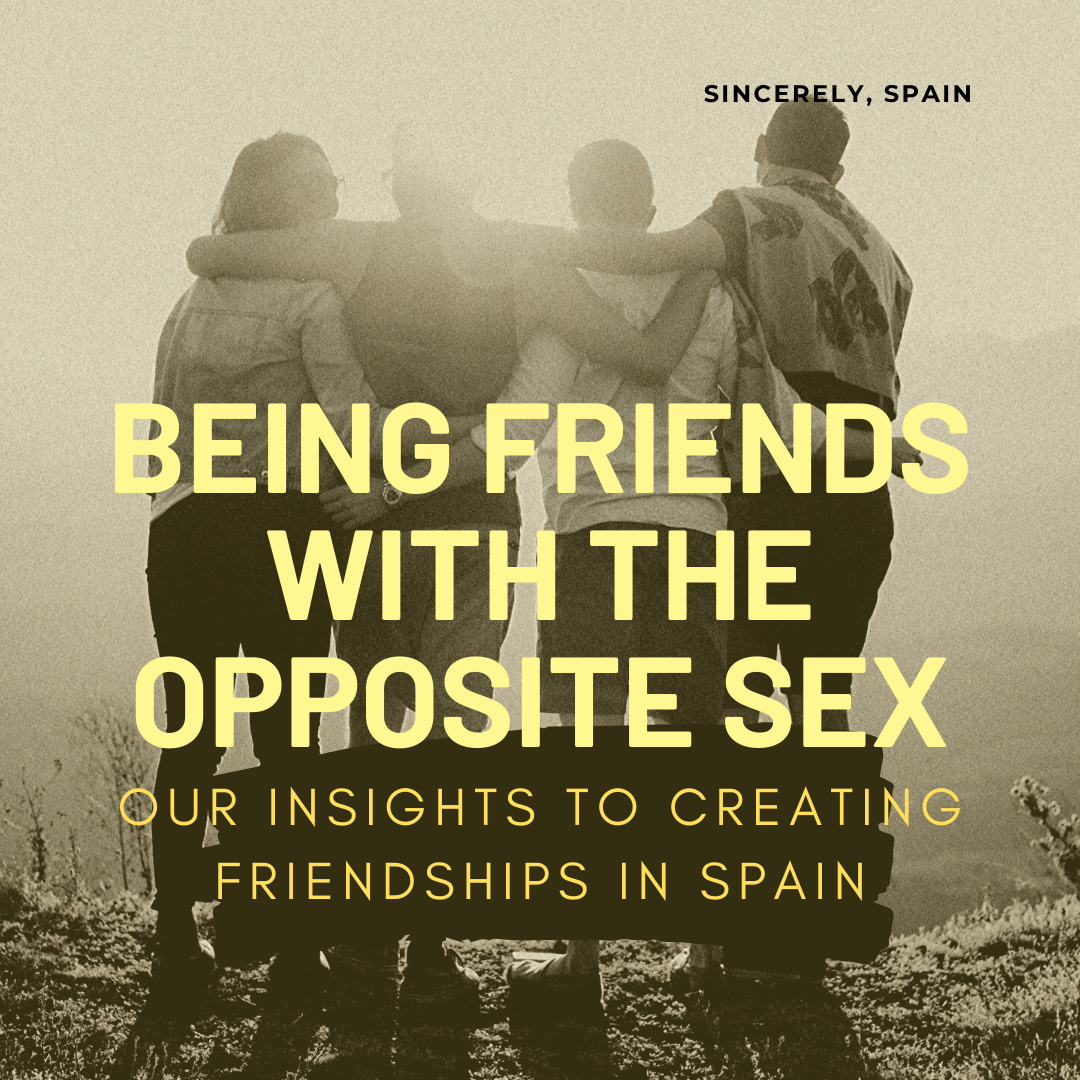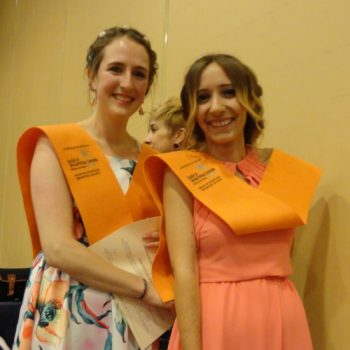
Being Friends with the Opposite Sex
Dear Fernando,
There are so many things that we find as ‘normal’ in everyday life that it can be hard to adapting to other cultures’ ‘normal’. One of the things that we tend to assume is the same everywhere are the roles that gender play in our daily life, but things might be different than you expect when you arrive in Spain. This is because, when we are thrown into different cultures, it can be difficult to understand and interpret how these gender roles change. Questions like the types of friendships that exist in different cultures can leave us wondering where we stand with others.
This is especially true if you find yourself wanting to make friends with people of the opposite sex in a country (and culture) different to your own. Why? Because these friendships are more normal in some cultures than others. You might even find that in some places friendships between different sexes doesn’t really exist at all. If you are the kind of person who likes to have all different kinds of friends, you are in luck—in Spain you might find some differences than what you are used to, but it is not impossible to create friendships with people of the opposite sex.
This idea is not always easy to explain if you haven’t lived the experience because it does not mean that cultures are opposite to one another but that the nuances that you will experience in daily life might not be what you expect. Therefore, if you are used to being friends with both guys and girls, you might find that this is a little bit less ‘normal’ in Spain than other places. That doesn’t mean that friendship does not exist in all shapes and sizes, but that you might have to be a little bit more aware than you might normally be back home.
 Take, for example, one girl hanging out with a group of guys like Claudia does when she plays soccer (previously in Spain but also now in Finland). While soccer can easily be considered an acceptable sport for girls to play in the U.S. and even a mixed sport when playing in summer leagues, etc., in Spain it is much less common phenomenon. Therefore, as a girl, if you decide that you want to make friends with Spaniards by signing up for a sport, you might find that you are constantly surrounded by guys. Playing with all guys is not a bad thing—it is something that Claudia has even grown to love—but it might take some getting used to. This is because guys interact with each other differently than girls do and you will probably find that you either become “one of the guys” and they pick on you in a kind, but harsh way or that they single you out as the only girl (or, it is even possible you experience both).
Take, for example, one girl hanging out with a group of guys like Claudia does when she plays soccer (previously in Spain but also now in Finland). While soccer can easily be considered an acceptable sport for girls to play in the U.S. and even a mixed sport when playing in summer leagues, etc., in Spain it is much less common phenomenon. Therefore, as a girl, if you decide that you want to make friends with Spaniards by signing up for a sport, you might find that you are constantly surrounded by guys. Playing with all guys is not a bad thing—it is something that Claudia has even grown to love—but it might take some getting used to. This is because guys interact with each other differently than girls do and you will probably find that you either become “one of the guys” and they pick on you in a kind, but harsh way or that they single you out as the only girl (or, it is even possible you experience both).
Another example is hugging. While in Spain it is quite common to give people two kisses (check out the post to see who, how, and when you should give two Spanish kisses), in other cultures, it is more common to give hugs. If you try to implement hugging in Spain, you might find that people are confused, even if they think it is a nice gesture. In some cases, the reaction might become a bit extreme. For example, in Spain, a hug can be construed as something that is much more intimate that the traditional two kisses for greeting someone. If you are hugging people on a regular basis you might find that people around you (or the people you are hugging) wrongly interpret your intentions. Now, as huggers, we cannot say you shouldn’t hug—in fact, we would never say that!—but that you should be aware that the interpretation of this action can be different from your original intention.
True story: One time while talking to a Spanish friend, Claudia was told that if she ever hugged her friend’s boyfriend “like that” (a totally normal hug in our opinion), the friend would be upset. This is even knowing that we tend to hug everyone and it is just a way to show kindness.
You should also consider how flirting with and dating people in Spain will probably be different to what you are used to back home. We have found that these differences exist between all sorts of cultures but, when you are not prepared for them, can results in difficult situations. That is simply because your reactions to situations will fit your expectations whereas the person/people you are with might feel completely different about the situation. Therefore, although you should never feel like you are in a situation where you are fearful of your safety (mental, physical, sexual, etc.), you should be aware that context you are in and your reactions to that context might complicate everyone’s interpretation of what is going on.
Please note: you might find that actions like touching a girl’s butt are totally common in Spain. However, this does not mean that you have to be comfortable with or accept these actions. Even if something is more culturally accepted, it doesn’t mean that you should AUTOMATICALLY assume that you have to put up with it.
Finding your personal balance when looking to create friendships with the opposite sex (if that is something that you are interested in) can be difficult. And, even when you do find where you are personally comfortable, you might find that you do not get it right with everyone (read, you might accidentally give the wrong impression). This balance is extremely complicated because it will also depend on the culture you find yourself in, on your specific friend group, and how you interact with people around you.
 That means that the path to finding your own way in your new world, wherever it may be, is going to take time; it may be hard and you will probably face misunderstandings along the way. At the same time it can also be fun and a wonderful learning opportunity. Try to learn not only about this new culture, but also about yourself―who do you like to hang out with? How do you like to communicate your friendship? Figuring out answers to questions like these will help you be able to thrive in your new home.
That means that the path to finding your own way in your new world, wherever it may be, is going to take time; it may be hard and you will probably face misunderstandings along the way. At the same time it can also be fun and a wonderful learning opportunity. Try to learn not only about this new culture, but also about yourself―who do you like to hang out with? How do you like to communicate your friendship? Figuring out answers to questions like these will help you be able to thrive in your new home.
Sincerely,
Spain




